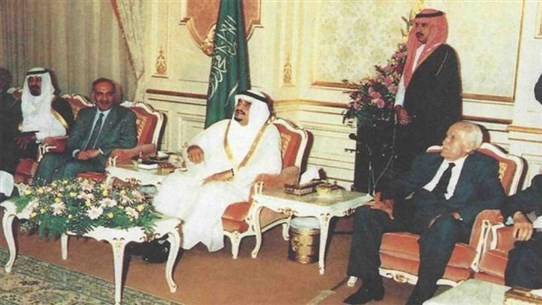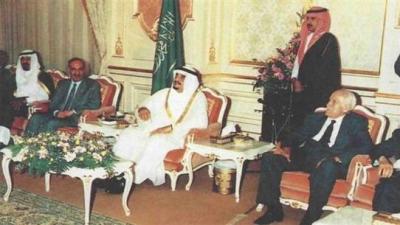In 1989, after 15 years of devastating civil war in Lebanon, the city of Taif in Saudi Arabia witnessed a Lebanese-Arab-international agreement that led to the amendment of the Lebanese system and the birth of the "National Accord Document," or what became known as the "Taif Agreement," which declared the establishment of the Second Republic. This agreement marked a turning point in Lebanon's modern history and comprised four main components: general principles and reforms, the consolidation of Lebanese state sovereignty over all Lebanese territories, the liberation of Lebanon from Israeli occupation, and Lebanese-Syrian relations.
While Lebanon was recognized as having an "Arab identity and belonging," it was affirmed that it is a "democratic parliamentary republic, based on respect for public freedoms, foremost among them freedom of opinion and belief, and on social justice and equality in rights and duties among all citizens without distinction or preference." The "National Accord Document" defined new powers for the President of the Republic and the Prime Minister. Previously, the President held nearly complete executive authority under the Lebanese constitution established in 1926, assisted by ministers. This authority was transferred to the council of ministers collectively.
The Taif Agreement has been implemented selectively over the past 33 years, as many essential reforms outlined within it have been overlooked, rendering the system constrained and self-paralyzing during key obligations. One of the most notable reforms remaining merely a written promise is the abolition of political sectarianism, which is seen as a major flaw of the current system. The document stated that "the abolition of political sectarianism is a fundamental national goal that requires efforts to achieve it according to a phased plan" established by the parliament, along with a national authority headed by the President, aiming to eliminate the basis of sectarian representation during a transitional phase, with a focus on competence and specialization in public jobs, judiciary, military and security institutions, public and mixed institutions, and independent interests, in accordance with the national accord provisions, except for top-tier positions and erasing sect and sectarian mentions in identity cards.
Additionally, the clause calling for the adoption of administrative decentralization and a unified comprehensive development plan capable of economically and socially developing Lebanese regions and enhancing the resources of municipalities, unified municipalities, and municipal unions with the necessary financial means has not been implemented.
According to former MP and President of "Meeting of Sayyidah al-Jabal," Faris Saeed, through the "Taif Agreement," Christians achieved "for the first time in contemporary Lebanese history their historical demand for the finality of the Lebanese entity in writing, while Muslims gained their historical demand for the Arab identity of Lebanon and its belonging to the Arab world," considering that "this social contract between Christians and Muslims goes beyond the issue of equal representation and a tri-partite structure, as it ended 70 years of fighting between one group accusing the other of incomplete Lebanese identity and a group accusing the former of incomplete Arab identity."
Researcher Joseph Bahout, from the Carnegie Middle East Program, noted in his study that the Lebanese political system is based on the sectarian division of constitutional authorities and administrative positions, ensuring representation for specific groups while also contributing to the paralysis of the decision-making process. He argued that the flaws inherent in a sectarian-based governance system led Lebanon into the throes of civil war. The Taif Agreement in 1989, which put an end to the war, modified this system. He observed that "despite the flaws in the Lebanese sectarian power-sharing system, and its disintegration in many respects, it has helped maintain a state of peace in the country and offers valuable lessons for the region."




